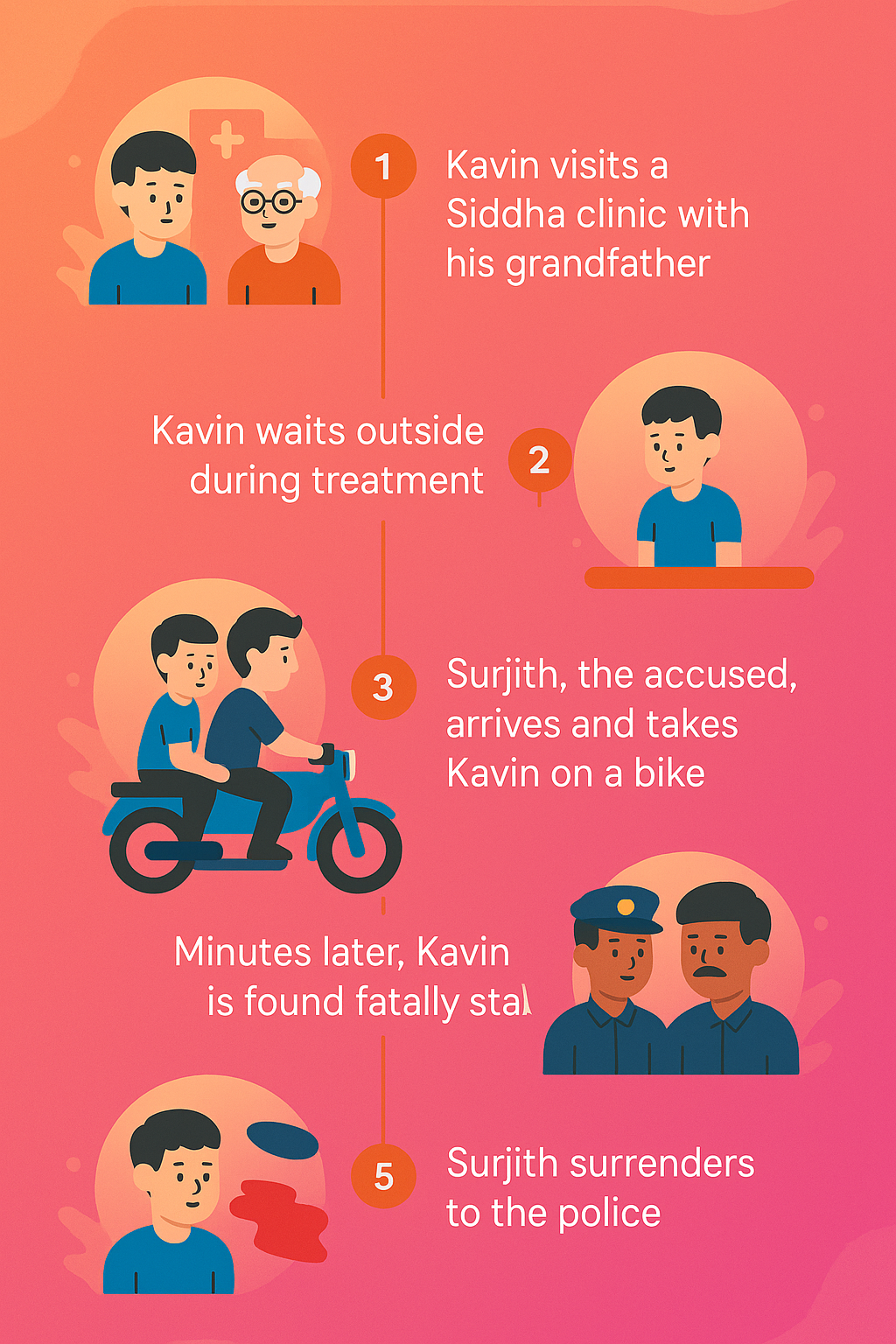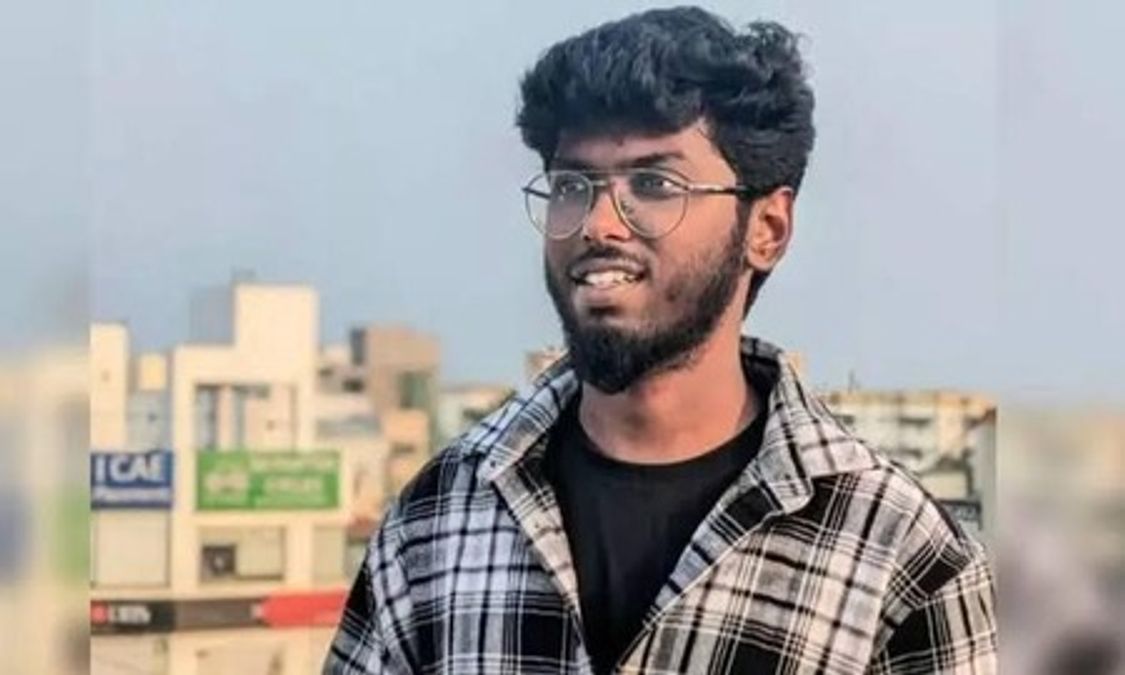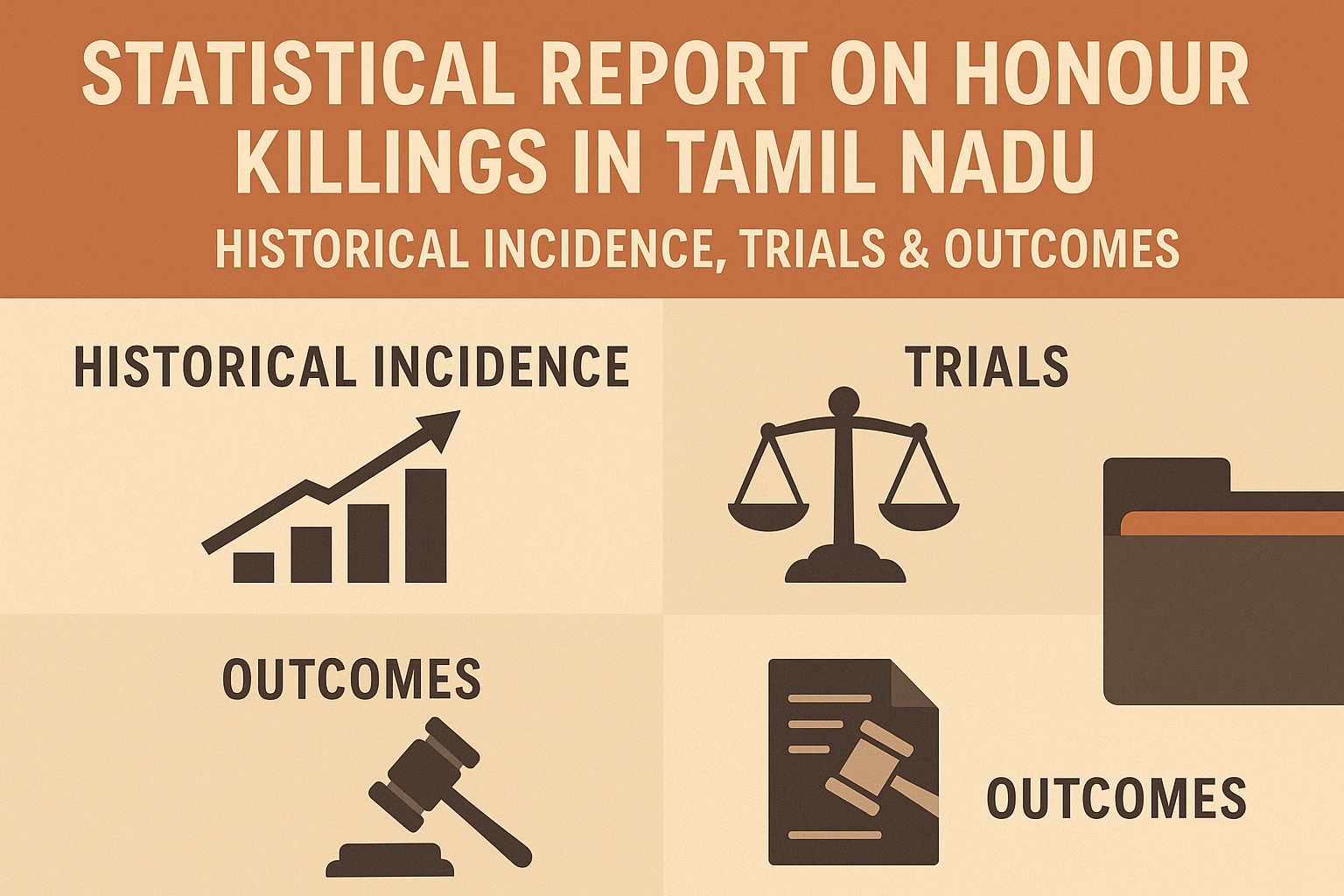The Tirunelveli Honour Killing — A Modern Tragedy
On July 27, 2025, a horrifying caste-based honour killing rocked Tirunelveli district in Tamil Nadu, reigniting nationwide outrage over caste-driven violence in India.
The victim, 27-year-old Kavin Selva Ganesh, a Scheduled Caste youth and software engineer, was hacked to death near Palayamkottai, while accompanying his grandfather to a Siddha clinic. The accused, 21-year-old Surjith, allegedly enraged by Kavin’s continued contact with his sister, lured him to a secluded area and brutally murdered him.
The Honour Killing That Shook Tamil Nadu
Who was involved?
- Kavin Selva Ganesh (27) – Software engineer from Tuticorin district.
- Surjith (21) – The accused; younger brother of the woman Kavin was allegedly in a relationship with.
- Saravanan and Krishnakumari – Surjith’s parents, both Sub-Inspectors in Tamil Nadu Police, named as co-accused.
What happened?
- Kavin, while waiting outside the clinic, was taken by Surjith to a secondary location and murdered with a machete.
- CCTV confirmed the sequence. Surjith later confessed.
When did it happen?
- July 27, 2025, in broad daylight.
Where did it happen?
- Outside a Siddha clinic in Palayamkottai, Tirunelveli.

Why did the murder happen?
- Caste animosity. Kavin was a Scheduled Caste man in a relationship with a dominant caste girl.
- The girl’s family allegedly disapproved due to caste. Surjith took matters into his own hands.
How is the case progressing?
- FIR under IPC Sections and SC/ST Atrocities Act.
- Surjith in judicial custody; parents named in FIR.
- Trial moved to a neutral location by Madras High Court.
- Government asked to report by October 2025.
Timeline Toward Justice
| Milestone | Status |
|---|---|
| Incident | July 27, 2025 |
| Accused Arrested | Within 24 hours |
| Co-accused Named | Ongoing Investigation |
| Trial Transfer Ordered | By Madras High Court |
| Report Deadline | October 2025 |
| Estimated Verdict Timeline | Late 2025 to 2026 |
Why Caste Still Kills in 2025
Despite India’s constitutional ban on caste-based discrimination, caste continues to be a violent, identity-bound social structure.
Key Reasons Caste Killings Persist:
- Family honour culture tied to caste purity.
- Opposition to inter-caste marriage.
- Societal stigma and communal pressures.
- Law enforcement bias in rural regions.
Legal Action in the Tirunelveli Case
The Tamil Nadu Police invoked:
- IPC Sections 302, 120B (Murder, Conspiracy)
- SC/ST Prevention of Atrocities Act
- Case under watch by Human Rights Commission
Not an Isolated Case
Tirunelveli and nearby districts have a violent history:
- Shankar-Kausalya case (2016)
- Dharmapuri inter-caste violence (2012)
- Melavalavu massacre (1997)
Caste crimes are often repeat offenses rooted in systemic hate.
Conclusion
This case underscores the persistent reality of caste-based violence in India, even among upwardly mobile, urbanized families. Despite legal reforms and police involvement, honour killings remain a brutal reminder of deeply entrenched prejudice.
To truly dismantle caste violence, India must go beyond punishment and address the ideological roots that perpetuate such crimes. Until then, the ghosts of honour killings will continue to haunt even the most progressive districts.
Justice must be fast. Justice must be fearless.



